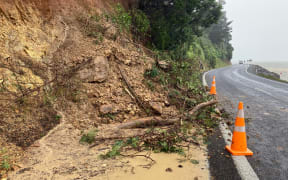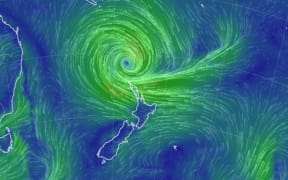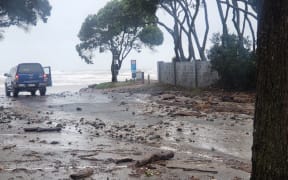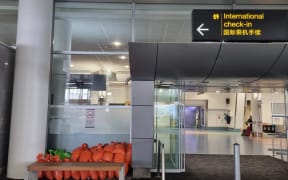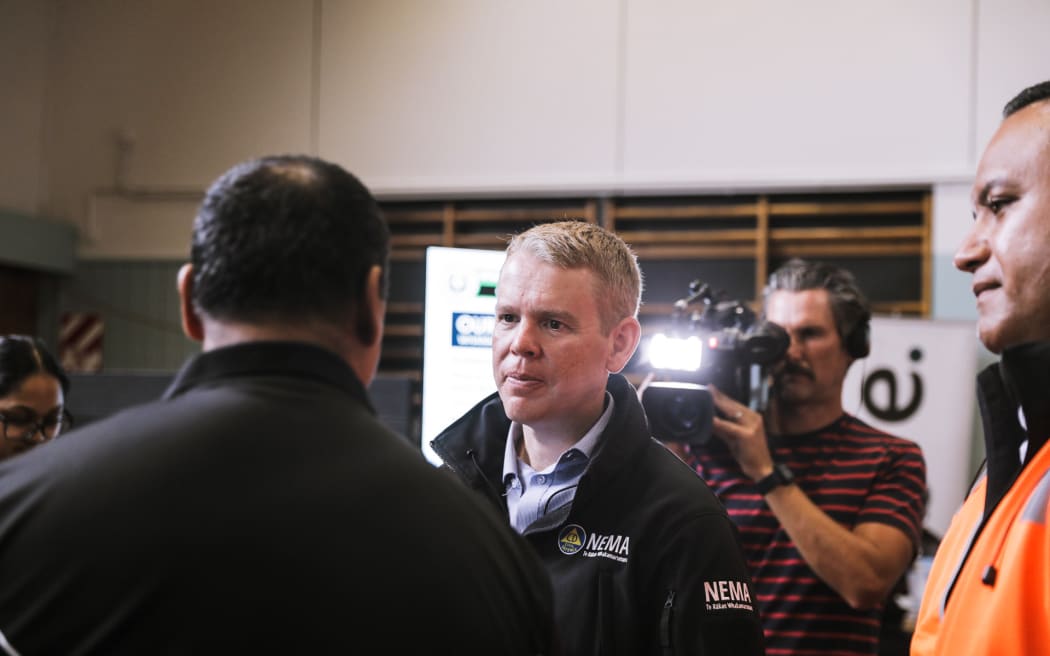
Prime Minister Chris Hipkins visits the Moana Nui A Kiwa Hub, for the South Auckland response to the flooding, in Māngere. Photo: RNZ / Samuel Rillstone
Prime Minister Chris Hipkins is stuck in Auckland while Air New Zealand's domestic flights are grounded, meaning Cabinet will be held online today.
"We'll make some contingency plans for that this afternoon or this evening, just depending on how things unfold today," Hipkins told Morning Report from the Auckland Emergency Management Centre.
Auckland, Northland, Gisborne, and Coromandel are under red weather warnings due to Cyclone Gabrielle, which made landfall in Aotearoa on Sunday. The rest of the North Island and the top of the South Island are under an orange warning.
Meanwhile, Hipkins said climate change and resilience were at the top of the agenda, as Auckland deals with another blow from severe weather in the space of two weeks.
He defended the Labour government's action on climate change, which had been labelled by former prime minister Jacinda Ardern as her generation's "nuclear moment".
The government was already working to address the challenges posed by the changing climate and severe weather events, but it was also about building resilience, he said.
"If you look at the work we're doing around RMA reform and the Natural and Built Environment legislation for example, we have to take better account of these sorts of things and the potential for these sorts of things and the way we do our planning.
"One of the things the Natural and Built Environment legislation is going to do is actually make it more difficult to approve houses in areas where we know natural hazards are a potential significant risk."
Asked why houses were still being allowed to be built in places like in Māngere, which has been hard hit by the recent Auckland floods including Kāinga Ora housing - Hipkins said he could not go back and justify every decision that had been made in the past.
"Those are decisions that are being made by local authorities."
Green Party co-leader James Shaw said councils were under pressure for housing, but there was a lack of national direction or tools not authorise construction on flood plains.
Hipkins agreed with that, saying that was one of the reasons why the law was changing.
"It will mean the law places much greater emphasis on existing natural hazards and that will include things like flooding. We are seeing in developments now, a change in approach, so more open streams rather than culverts... I'm not saying there hasn't been change but there certainly will be more change. "
Asked if recent consents to build in flood plains should be revoked, Hipkins said the country was still in a response phase rather than recovery.
"We've got to just make sure we're getting people through what is likely to be a pretty difficult 48 hours or so."
